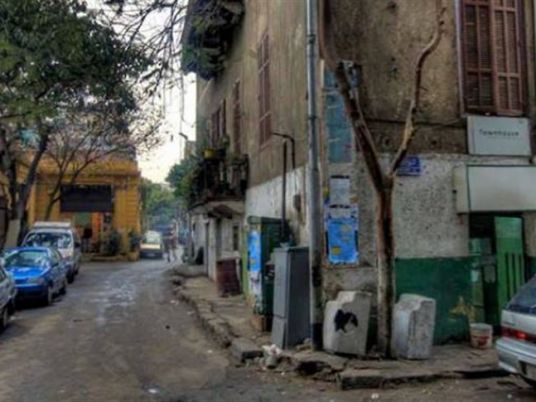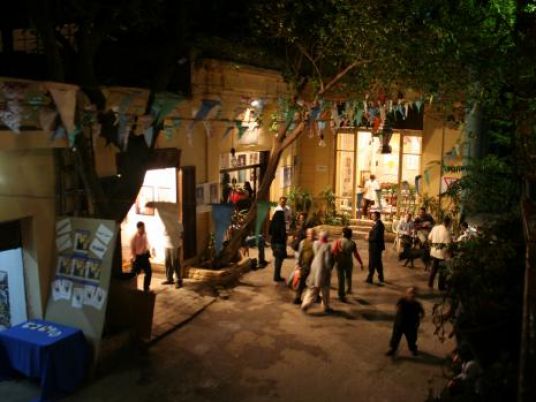Egypt is celebrating its first complaint choir at Townhouse Gallery.
Ranting does miracles when it comes to helping people sleep at night; the favorable activity is a drug for any pain that complainers feel. Cairo Complaints Choir, however, is mostly about the people who notice problems and comment on them.
The event, serving as the opening night act for ‘Invisible Publics’, an exhibit opening on Sunday 23 May at Townhouse Gallery, Cairo, however, is not the first city to host a complaints choir. “The complaints choir is actually a project that two Finnish artists Tellervo Kalleinen and Oliver Kochta-Kallleinen started in 2005 in Helsinki,” says Sarah Refky, curator of the Townhouse Gallery, “The idea at the time was to re-channel the energy that people had into something that has form and could be appreciated by wider public.” The idea gained so much momentum that this project started being replicated in different cities from St. Petersburg to Tokyo.
Sarah along with Salam Yousri and Moatz Attallah and project curator Mai Al-Wakeel, invited people through Facebook to come to Townhouse Gallery and work on creating original songs for the choir. I signed up for this unique social experience. The organic experience was repeated in the first day of the event when we started getting to know each other through silly games and we began to understand each other’s backgrounds as we poured our souls out complaining about the world.
Not to my surprise, I was the only non-Egyptian person among the first comers; Egyptian 20-something groups of people gathered the first night. Most of them are familiar faces you see around Townhouse and Rawabet Theater from time to time and aside from myself and another journalist; most of them are performers and musicians in different bands famous among the young generation.
“The idea of the choir is simple yet amazing,” says Yousri, one of the organizers of the event and a theater director, “it allows people to share their everyday complaints and problems via song.”
Brushing and sculpting these complaints brought out some extremely creative songs. Everyone got the chance to speak through music and lyrics and the choir started to tell stories through one voice. The complainers, with their criticizing eyes, picked a number of themes for the songs varying between personal accounts and commentary on the current issues in Egypt today.
We asked Saeed, one of the workers in the shisha joint next door, to join us one night; the old man sat among us and told us about the new real estate law he would like to criticize. We wrote down his comments and we injected them into a song about the busy streets of Cairo.
“The fact that we managed to pull this off is amazing,” says Shadi, one of the musicians in the choir, “creating three or four songs in less than a week with such a big group needs a lot of harmony. Thankfully we had that.” Harmony was indeed needed to create all these songs, people started to understand each other; sharing food, water and cigarettes through the long five hours of daily training.
“We converted the complaints into a poem-like narrative,” says Attallah, co-organizer and a stand-up comedian, “Some songs use an original melody while others use a standard Egyptian format for the song.” We started a song as a tribute to famous Egyptian singer Shabban Abdel Rehim’s style of singing then we dropped the melody later on for fear of being sued. Our final, 14-minute-long song does not hold back. We talk about people who fight for the simple reason of fighting; we ask the ladies to stop cleaning their carpets over our heads as we pass down the street; and we curse the government employee who keeps us waiting for years before signing a simple paper.
This is not the first complaining piece of art Egypt has witnessed. The Complaints of the Literate Farmer is a famous historical play written in the Pharaonic ages telling the story of a farmer politely complaining to his master about the unpleasant circumstances in which he and his family are living. The play, originally untitled, saw several modern renditions including a dance performance directed by famous Egyptian director Shadi Abdel Salam and choreographed by Waleed Awni. Prominent poet Bahaa Jaheen later translated it into colloquial Arabic poetry.
“The choir at the moment is sort of a pilot thing,” says Refki, “I was asked many times if I want to make a larger choir, take it to the opera house or even take it to the streets. I’m excited that other people are excited about it. Maybe it will evolve into something else or just become a massive choir that would have its own show.”
The event will take place on Sunday 23 May in el-Nabarawy Street. The choir will gather outside of Townhouse Gallery at 9 PM and will perform the songs. The performance might take place at 10 PM as well. The performers will sing from the heart even though they know that, just like what they say in their songs, “there is nothing easier than complaining and that nothing really changes.”




